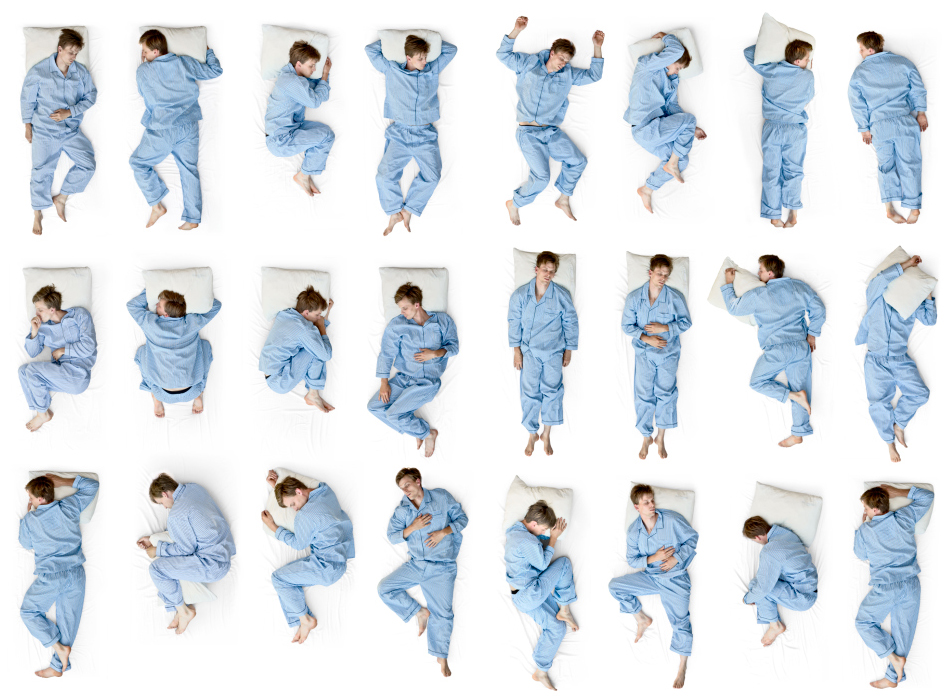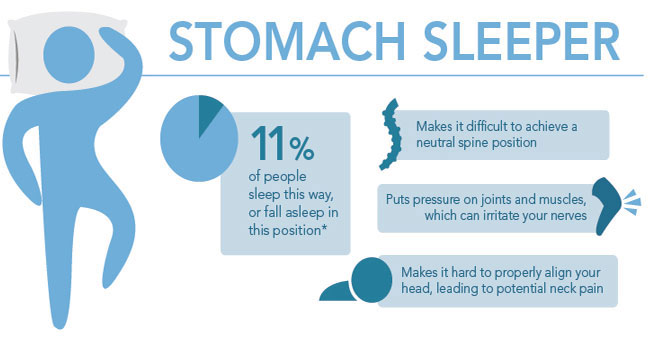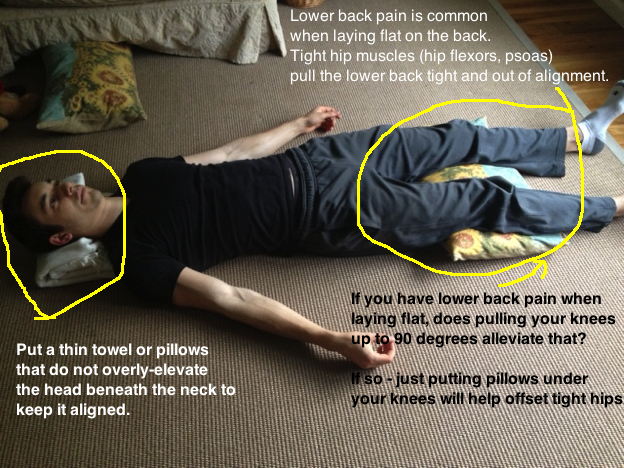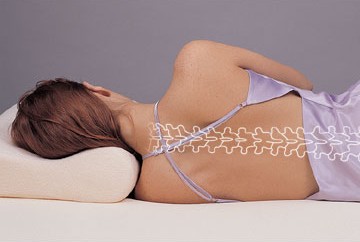← How to Reduce Inflammation The Value of Chiropractic Care in Birth Preparation →
How Do You Sleep?
June 28, 2016

Sleeping positions
Do you wake up with a sore neck or back in the mornings? Do you stomach sleep? Try walking around with your head turned to one side. It won’t take long for you to begin feeling pain, soreness, dizziness or neck/shoulder tension. Your body doesn’t like this standing up, and I promise you that it doesn’t like it when you’re lying face down with your head on a pillow either.
The fact is, wrenching your head and neck in this way for even just a few minutes while sleeping can significantly strain the muscles and ligaments of the spine. Repeatedly doing so every night for years slowly adds pressure to the joints and nerves, contributing to spinal degeneration and allowing for the development of a variety of health problems.

Try sleeping on your back.
– Use a neck support pillow to maintain the arch in your neck. The back of the head should be pretty close, if not directly on the mattress.
– Place a pillow under your knees to remove pressure from your lower back.

Or sleep on your side:
– Support your head and neck with enough pillows (fold it in half to make it thicker if you have a thin pillow) to keep your neck in-line with your spine.
– Place a pillow between your knees to remove pressure from your lower back and pelvis.
– Hug a body pillow close to your chest with your top arm, making sure not to raise your arms above shoulder height to prevent circulation and nerve impairment. This is probably the main thing that will assist in switching to side-sleeping, since stomach-sleepers want to feel something close to their front-side.

Adjust your lifestyle for maximum healthy sleep:
– If you find you roll onto your stomach during the night, try sowing something uncomfortable (eg, a small soft toy) to the front of your night shirt. This will train you not to turn over!
– Perform a stretching or meditation routine before bed to help you relax and prime your mind for quiet.
– Do not have any caffeine after 10am if you plan to sleep by 10pm. Caffeine can affect your ability to get to sleep over 12 hours later and can make your muscles very tense.
– Exercise during the day.
– Reduce the amount of light in your room. Studies show that ANY amount of light will affect your internal clock, including that from alarm clocks.
This entry was posted in
General. Bookmark the
permalink.
← How to Reduce Inflammation The Value of Chiropractic Care in Birth Preparation →





Leave a Reply
You must be logged in to post a comment.